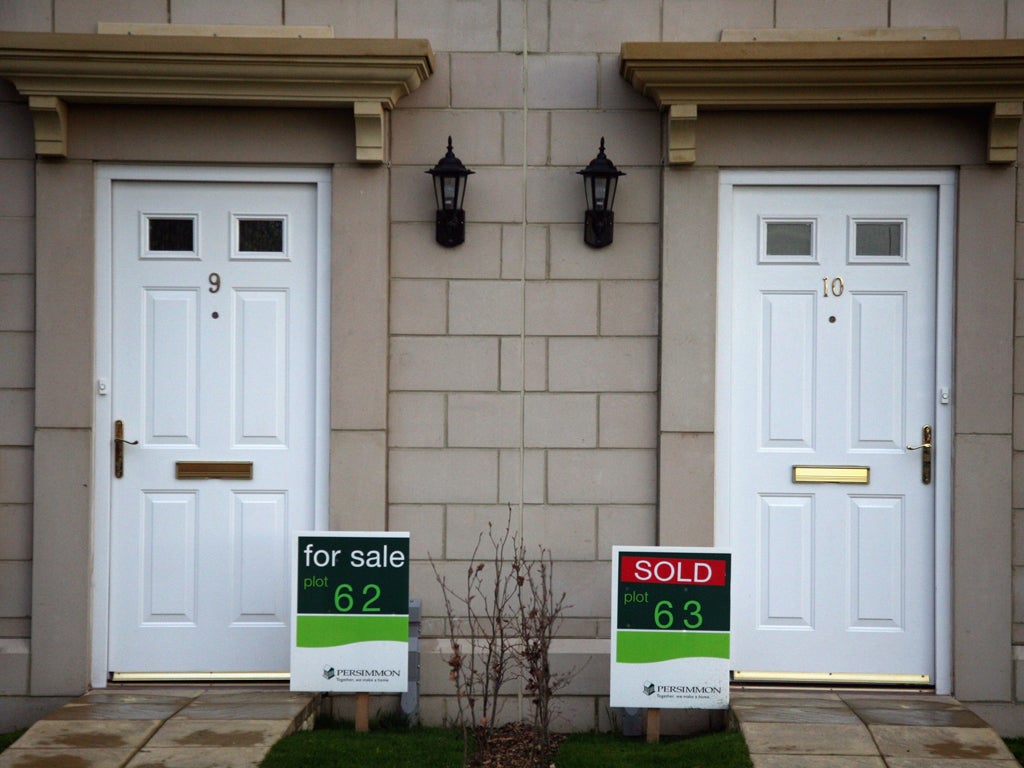Why do we now build the smallest new homes in Western Europe?
People don’t like new builds, but they're more likely to welcome them if they're a decent size. We need to get Britain building again, but size matters

One small but very significant issue has been missing from the all the recent debate over the political legacy of the 80s.
In 1980, the Government abolished the Parker Morris space standards for council housing in order to remove prescription and cut costs. Unfortunately, the trickle down affect of this policy is feeding local opposition to house building today.
Everyone now agrees we need to get Britain building again. House building will create jobs, stimulate the economy and give thousands of young couples the opportunity to buy the sort of brand new family home that was available to their parents.
But there’s a problem: people don’t like new builds. They don’t want them built in their local area, and many would-be buyers don’t want to live in them. As a result, a recent survey highlighted that a notable majority of local politicians are resistant to any new homes being built in their area.
How have we got here? Nick Boles recently summed up the conundrum faced by the Government: ‘In a nutshell, because we don’t build beautifully, people don’t let us build much. And because we don’t build much, we can’t afford to build beautifully’. The Minister argued that developers stuff as many homes as they can onto a site and, in an attempt to make the properties affordable, skimp on room size, architectural features, materials and landscape design.
Design of new homes is certainly a big stumbling block: 73% of people would support housing developments if homes were better designed and in keeping with the local area.
And space is a major factor. A new YouGov survey for Shelter shows that nearly twice as many people (44%) would support the building of larger homes than would support developments of smaller ones (23%), even if this meant taking up more land. And research launched by RIBA this week shows that 80% of public would be more likely to choose a home that has minimum space standards.
Previous polling shows the size of the rooms is one of the top three issues people for when moving home. And while there is a clear preference (49%) for period homes, nearly a quarter of people would like to move into a home built within the last 10 years. What puts them off are the small rooms and lack outside space.
So, why do we now build the smallest new homes in Western Europe? Well, we’re one of the only countries without national minimum space standards for new homes. In England, space standards are left to local planning policy. London is leading the way on space standards, after the Mayor pronounced that it was ‘shameful that new buildings in London now have among the smallest rooms in Europe’. Maybe this is why add-on conservatories are so popular in this country. But rather than looking to ease the rules on home extensions, why not make sure that new homes are large enough in the first place.
Enforcing a new ‘Parker Boris Standard’ in London would be a great step forward - but it can be difficult for smaller authorities to demand minimum space standards from big, national developers who can always go elsewhere. Tackling space standards through local planning policy can only go so far without underpinning by a non-negotiable, national minimum. This is because national housing space standards allow developers to push the additional cost of building better quality homes back onto lower land prices, rather than adding to the overall cost of development.
A Government-led review of housing standards will soon be reporting to Ministers. Aimed at simplifying the plethora of red tape and regulation, there’s no doubt this review is long overdue. But it must also be used to improve the quality of new homes by including national space standards in building regulations.
It’s a rare opportunity to banish the rabbit-hutch homes to which we are so resistant – and get Britain building the sort of new homes that we can all be proud of.
Deborah Garvie is a Senior Policy Officer at Shelter
Join our commenting forum
Join thought-provoking conversations, follow other Independent readers and see their replies
Comments
Bookmark popover
Removed from bookmarks